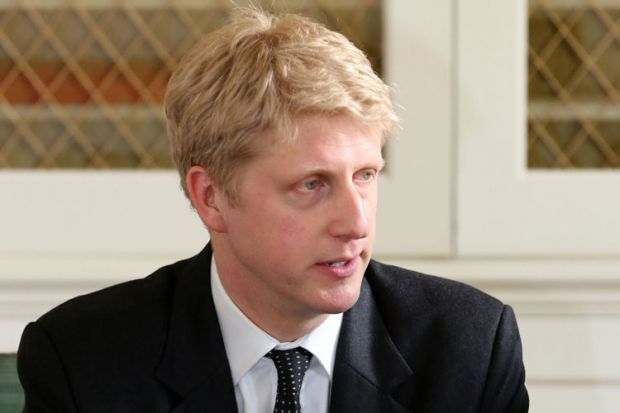The UK government is considering extending the post-Brexit financial support promised for research projects currently funded by the European Union, the country’s universities minister has said.
Giving evidence to the Commons Science and Technology Committee, Jo Johnson said that the government recognised the “high value” of the Horizon 2020 funding scheme and hinted that provisions were being made to ensure the UK’s continuing participation in such programmes.
“Participations in Horizon 2020 by EU and UK researchers and institutions are still running at strong levels,” Mr Johnson told the committee. “I think that shows that the underwrite that the Treasury put in place pretty promptly is working, and it’s doing the job that we needed it to do. That’s not to say we’re not watching this extremely carefully and always assessing whether there aren’t further things that we need to be doing to ensure our institutions continue to bid successfully.”
Asked if the government was considering extending its underwriting after the Brexit transition period, Mr Johnson nodded, adding: “This is one of the questions that we are keeping under very careful review.”
His comments follow promises made in August 2016, when Philip Hammond, the chancellor, announced that the Treasury would underwrite funding for successful UK bids to Horizon 2020 submitted before March 2019, when Britain formally leaves the EU.
Despite a warning posted on the EU’s website that UK bids accepted after the Brexit date may be withdrawn without financial backing, researchers and institutions need not be confused, Mr Johnson added, because the Treasury would protect their applications.
Chairing the session, Liberal Democrat MP Norman Lamb asked Mr Johnson whether he saw a need to use the funding set aside by the government for science as an entry fee to a potential successor to the Horizon 2020 programme.
Mr Johnson said that this was not necessary because the required funding had already been set aside.
On the topic of Brexit, another panel member, Graham Stringer, questioned the minister about whether there had been any evidence of UK-based scientists being discriminated against since the Brexit vote.
The department, he replied, had sent out an email broadcasting its keen desire to hear “hard evidence of greater than usual churn, for example…difficulties in recruiting people from other countries”.
“Thus far,” Mr Johnson said, “we haven’t been given that evidence. There have been anecdotal descriptions from time to time, but we haven’t as yet received any substantial body of evidence from any representative group.”
Also addressed in the session were questions surrounding the delay in appointing a chief scientific adviser within the Department for Exiting the European Union (DExEU).
Mr Johnson said that the appointment was strictly a matter for DExEU and not something that his department had been directly involved with. But he noted the appointment of Chris Jones as chief scientific adviser, as announced earlier this week.
“He brings with him many of the skill sets which are going to be useful to him in that role – particularly a strong understanding of the civil service process that’s at work to deliver Brexit,” Mr Johnson said.
After Tuesday’s session, the Science and Technology Committee launched an inquiry into the science budget and industrial strategy. An industrial strategy White Paper is due to be published in the coming weeks.
Register to continue
Why register?
- Registration is free and only takes a moment
- Once registered, you can read 3 articles a month
- Sign up for our newsletter
Subscribe
Or subscribe for unlimited access to:
- Unlimited access to news, views, insights & reviews
- Digital editions
- Digital access to THE’s university and college rankings analysis
Already registered or a current subscriber?






